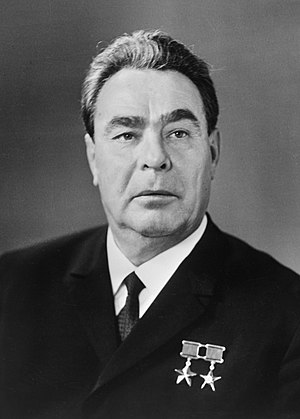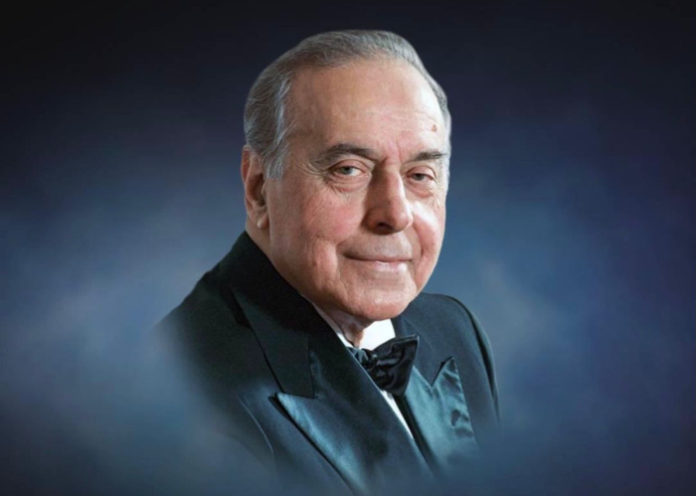Nations without leaders generally remained less sovereign and more dependent on others. The role of leaders and their inspirational capabilities inherited in their ground-breaking personality lead nations towards right directions. History is full of leaders and their stories of struggle in defining the path for their nations; every region in the world has been blessed with leaders and their participation in the advancement of their respective nations. The charismatic characteristics of Muhammad Ali Jinnah, Vladimir Lenin, Gamal Nasser, Winston Churchill, Abraham Lincoln, Kemal Atatürk, Nelson Mandela, and Jörg Haider have become all become unavoidable part of human history. The stories of states cannot be completely comprehended without studying the role of specific leaders who devoted their lives for their people. The recent history of world politics starting from the end of decades-long period of the Cold War presented new leaders in international system, particularly from the former Soviet states.
Heydar Alirza oglu Aliyev or commonly known as Heydar Aliyev, also recognized as Gaydar Aliev is a renowned politician and a distinguished figure of Caucasian history from South Caucasia. He became the third president of the Republic of Azerbaijan – a state bordering to Caspian Sea, Russia, Armenia, Georgia, and Iran. The genesis of Azerbaijan is linked to Russia and Persian empires. The Treaty of Turkmanchay ended the Russo – Persian war (1826-1828) and divided Azerbaijan between two empires. Azeri land has further fascinated world powers with their huge deposits of oil and their exploration. The land of Baku (present capital city) drilled first oil well and the famous Nobel family established the first oil-production company in 1879. The history of Azerbaijan shortly changed during the First World War with the collapse of the Russian Empire. The status of short-lived Transcaucasian Democratic Federative Republic (TDR) was abruptly changed. It was also recognised as Transcaucasian Federation of South Caucasian states which are presently known as Armenia, Azerbaijan, and Georgia. In 1918, Azerbaijan became a republic, but this brief period also announced Azerbaijan Democratic Republic (ADR). After the Russian revolution, Bolshevik’s extension targeted the Azeri people and the Red Army invaded Baku in 1920. Vladimir Lenin justified the invasion of communist forces by saying that the Soviet Russia and its extension could not be completed without considering Baku’s oil as a larger part of communist empire. The Nobel Brother’s oil company was also nationalized under the Union of Soviet Socialist Republics (USSR). The extension of 11th Soviet Red Army of Bolshevik towards Caucus region declared Azeri land as the Azerbaijan Soviet Socialist Republic or Soviet Azerbaijan. The status of a full republic of Soviet Union was granted to Azerbaijan in 1936 with the dissolution of Transcaucasian Democratic Federative Republic (TDFR). Further history of Azerbaijan witnessed the emergence of a great personality from Nakhchyvan city who became a beacon of hope for a prosperous and sovereign future of Azerbaijan. It was Heydar Aliyev who started to think about the future of his country.
In 1923, Aliyev born in Nakhchyvan city, a landlocked exclave area of Azerbaijan. The same city became the fundamental source of his early education and he was enrolled in Nakhchyvan Pedagogical School till his graduation. In 1939, he entered in Architecture department of the Azerbaijan Industry Institute which later became Azerbaijan State Oil Academy and further was converted into a university (Azerbaijan State Oil and Industrial University). The autonomous territory of Soviet Socialist Republic of Nakhchyvan was the privileged area where the great leader, Heydar Aliyev started his career by heading the department at the People’s Commissariat of Internal Affairs in 1941. After two years, he joined the state security bodies and became an active part of Azerbaijan SSR People’s Commissariat for State Security (NKGB) in 1944. The NKGB (also known as KGB) was the soviet secret police mainly responsible for managing intelligence and counter-intelligence operation, and later was renamed as Ministry for State Security. The rapid professional growth of Aliyev served to increase his professional abilities under the security services and he first secured the post of deputy chairman in 1965, then became the chairman of the Committee of State Security under the Cabinet of Ministers of the Republic of Azerbaijan in 1967. Later Aliyev rose to the rank of lieutenant general.

The quest for knowledge forced Aliyev to continue his studies parallel to his intense professional engagements and he decided to pursue higher education from Russia and Azerbaijan. The department of history, Azerbaijan State University declared him a university graduate in 1957. Leonid Ilyich Brezhnev, the Soviet politician, selected Heydar Aliyev as the First Secretary of the Central Committee of Azerbaijan Communist Party in 1969. The era of political development under Aliyev initiated, in this way, in Azerbaijan. The Azeri people got the opportunity to initiate efforts for their better future under the leadership of Aliyev. As the head of the communist party, Heydar Aliyev began an enlightened period of increased political and social reforms coupled with an unprecedented era of economic growth on Azeri soil. Yuri Vladimirovich Andropov, the fourth General Secretary of the Communist Party of Soviet Union made Aliyev a full member of Soviet Politburo and directed him to shift to Moscow. Hence, Aliyev became the elected member of the Political Bureau of the Central Committee of the Communist Party of Soviet Union, and became the First Deputy Chairman of the Cabinet of Ministers of the USSR. In this way, the political career of Aliyev went from strength to strength, because he carried a dedicated personality ready to take challenging tasks along with him.
An extreme phase of Aliyev’s efforts commenced when he became an inevitable part of USSR’s main politics. The passion to remain loyal and honest leader to his nation disappointed Soviet leaders who fabricated an uncomfortable environment for Heydar Aliyev. This Azeri leader gradually was unable to compromise on his duties, and eventually decided to resign as a mark of protest against the General Michael Gorbachev regime. After leaving Soviet politics Aliyev decided to settle in his native land, the Nakhchyvan city, where he took up active participation in domestic politics. He started a memorable struggle against corruption and tried to minimize corruption by implementing number of punitive measures against corrupt people. The aim of Aliyev to cure the corruption-ridden society was moderately successful. Furthermore, his fight for the rights of Azeri people and against the Soviet brutal policies further forced Aliyev to leave the Communist Party of the Soviet Union in 1991. This was not the end of his political career. In Azerbaijan, he was appointed the chairman of the Supreme Soviet of the Republic of Azerbaijan.
It was in 1993 when the fate of the Azerbaijani nation changed. The Azeri citizens demanded Heydar Aliyev to lead the nation and manage the internally deteriorating security situation. In order to fulfil the wishes of the people, Aliyev came to Baku and became an elected Chairman of the Supreme Soviet of Azerbaijan. The elections in October 1993 made him the President of Azerbaijan and in 1998 the Azeri people elected him President again for another five year period. He served his nation for a decade-long period and left the government in 2003. During his presidential term he proved to be a hardworking leader, clever politician, intelligent officer, and a wise policymaker. Due to extreme health issues, Aliyev was unable to continue as President and despite getting medical treatment from abroad he failed to recover his health and passed away in December 2003. In spite of having severe health problem since 1991 he used the best of his potential to serve the Azeri nation. Eventually, he appointed another candidate for the election and preferred to leave politics peacefully.
The life of Heydar Aliyev is full of different awards, various medals, and numerous achievements. He was a five-time recipient of the Lenin Order, the highest civilian decoration bestowed by the Soviet Union. The Soviet Union’s military decoration, the Order of the Red Star was also bestowed upon him. He twice received the rank of the Hero of the Socialist Labour, an honorary title of the Soviet Union. He was admired by the international community as well. Yaroslav Mudry Order of Ukraine, Peace Premium of Ataturk Order of Turkey, and Order of Saint Apostle Andrey Pervozvann of Russia were also granted to Heydar Aliyev. The struggle Aliyev has done for Azeri citizens is unforgettable because he came into power at the time when the Azeri nation was looking for a dynamic leadership and waiting for a person who could prevent the Soviet foot from remaining in Azerbaijan. Aliyev preferred to take the responsibility of his country on the basis of a sagacious personality, and proved to be a leader of diverse characteristics.
The personal life of Aliyev started in 1948 when he decided to plan his life and married to an Azeri academician. Zarifa Aziz gizi Aliyeva, an ophthalmologist and a renowned Azeri academic writer decided to became the wife of Heydar Aliyev. She later became the mother of Ilham Aliyev, the fourth president of Azerbaijan. The dedication of Heydar Aliyev’s whole life for the betterment of the people living in his country left a progressive impact on his son who became the President in 2003. Heydar enlightened the life of his son and made him a leader of Azeri nation. The name of Heydar Aliyev will always be remembered not only by the Azeri people, but the future generations of international community will also salute the Aliyev’s vibrant personality.




